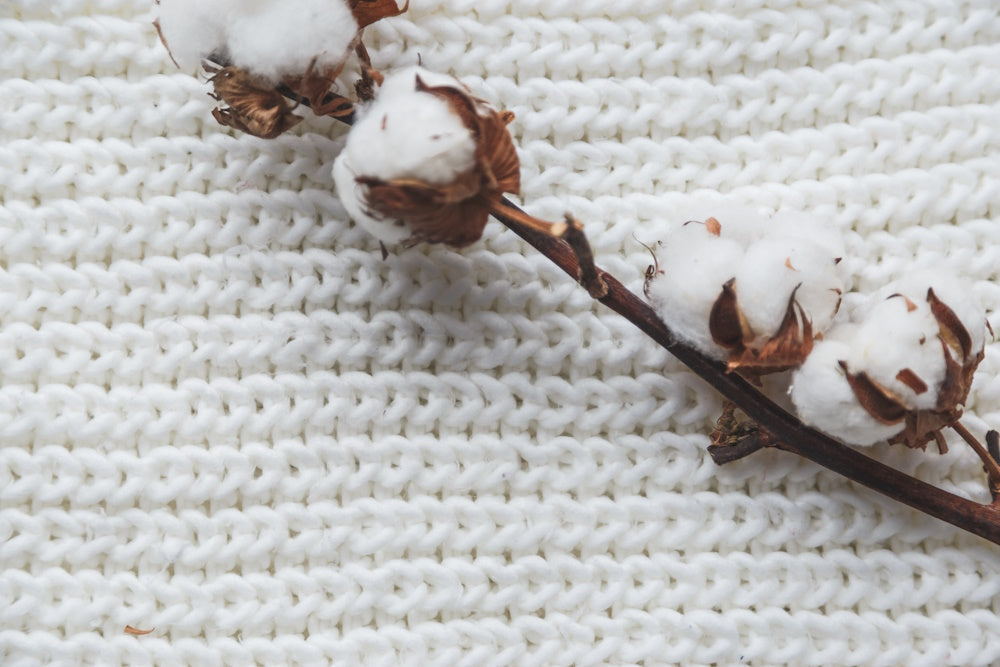Organic cotton has become a byword for sustainability in the textile industry. Unlike regular cotton, which is often treated with chemical pesticides and fertilizers, organic cotton is grown using methods and materials that have a low impact on the environment.
This article explores what exactly organic cotton is, its benefits, and how it stacks up against other sustainable materials.
Table of Contents:
- Understanding Organic Cotton
- The Production Process
- Benefits for Your Skin
- Environmental Impact of Organic Cotton
- Comparison with Other Sustainable Materials
- Economic and Social Aspects
- Challenges and Considerations
Understanding Organic Cotton
Organic cotton is a natural fiber cultivated without synthetic chemicals, relying instead on non-genetically modified seeds and sustainable agricultural practices to manage pests. According to Poveda Textil, organic cotton fibers are extracted from natural seeds, and their cultivation process is designed to maintain both human health and ecological balance .
Key attributes of organic cotton include its softness, hypoallergenic properties, and breathability, making it ideal for sensitive skin. Furthermore, it is renowned for its environmental friendliness, reducing water consumption and keeping rivers and lakes free from toxic substances .
The Production Process
Better Goodness delves into the intricacies of growing organic cotton, emphasizing the importance of using non-GMO seeds resistant to pests and diseases . The soil used for organic cotton is enriched through natural methods such as crop rotation and composting, ensuring it remains free from synthetic fertilizers and pesticides .
The planting process employs manual or mechanical methods, where weeds are controlled by hand weeding or using mulch . This meticulous process supports sustainable agriculture while preserving soil quality and biodiversity by avoiding synthetic chemicals .
Benefits for Your Skin
Organic cotton is celebrated for its skin-health benefits. It is hypoallergenic and natural, ensuring that it is gentle on the skin. With no chemicals used in its production, organic cotton minimizes the risk of allergic reactions . Maake highlights organic cotton's soft texture and superior quality, making it a preferred choice for clothing and textiles .
Environmental Impact of Organic Cotton
Compared to conventional cotton, organic cotton boasts a significantly smaller carbon footprint. Green Story notes that organic cotton requires less water than standard cotton, although both types are water-intensive . By utilizing regenerative agricultural techniques like no-till farming, organic cotton helps restore soil health and boost biodiversity .
Organic farming practices limit soil erosion and have been shown to reduce energy consumption by 62% and CO2 emissions by 46% . Such environmental benefits make organic cotton a compelling choice for eco-conscious consumers and brands alike.
Comparison with Other Sustainable Materials
When weighed against other sustainable materials, organic cotton stands out for several reasons. It significantly reduces the use of fertilizers, herbicides, and pesticides compared to its counterparts . However, the comparison to materials such as recycled polyester or hemp could highlight further areas for improvement, particularly in terms of water usage .
Economic and Social Aspects
Opportunities abound for using organic cotton to promote fair wages for farmers and foster social responsibility within the fashion industry . By opting for organic cotton, brands can support ethical labor practices and contribute to the social well-being of agricultural communities .
Challenges and Considerations
Despite its advantages, there are challenges tied to the adoption of organic cotton, such as the higher cost of production compared to conventional cotton. Additionally, accessing region-specific farming techniques and data remains a consideration for widespread adoption .
Conclusion
Organic cotton presents an opportunity to embrace sustainable practices, with significant benefits for the environment and human health. As consumers and industries become more attuned to sustainability, the expected growth in demand for organic cotton is likely to impact future fashion trends. By understanding the production, benefits, and challenges of organic cotton, stakeholders can make informed decisions that reflect a commitment to environmental stewardship and social responsibility.

